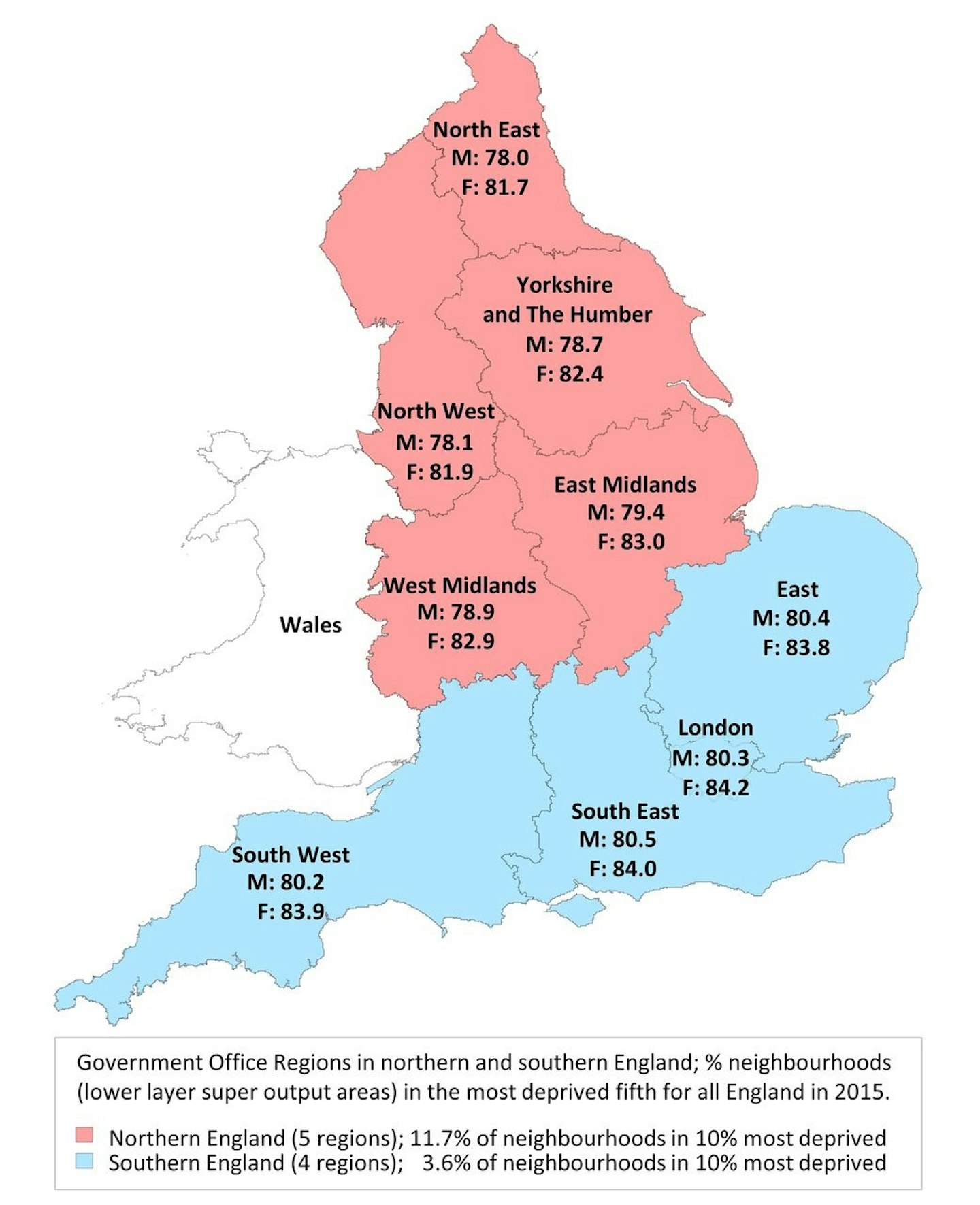England's famed North-South divide has come into sharp focus once more, as a new study finds people living in the North are 20% more likely to die early.
Researchers from the University of Manchester and the University of York have identified an "alarming growth" in premature deaths among Britain's northern population.
Leading causes of mortality among young adults include suicide, poisoning, traffic accidents and liver disease.
The team looked at mortality figures from the Office of National Statistics between 1965 and 2015, based on the number of deaths in each region versus population size.
In the study, the North was counted as the North East, North West, Yorkshire and the Humber, East Midlands and West Midlands.
The South consisted of the East, South West, London and South East.

Premature death rates generally declined from 1965 in both the North and the South, the study published in the Journal of Epidemiology & Community Health found.
But, overall, around 1.2 million more people died before the age of 75 in the North of England than in the South during that 50-year time frame. In 2015 alone, 14,333 more people died early in the North.
Researchers also observed that mortality rates among those aged 25 to 44 years old increased or plateaued from the mid-90s onwards in the North - while in the South, rates continued to decline for that age group.
Additionally, there were 49% more deaths among 35 to 44-year-olds in the North than the South in 2015, and 29% more among 25 to 34-year-olds.
The academics did not give specific reasons for the glaring difference in premature mortality rates, but they called on government investment to address the "profound inequality".
"Five decades of death records tell a tale of two Englands, North and South," lead researcher Professor Iain Buchan told Sky News.
"They are divided by resources and life expectancy - a profound inequality resistant to the public health interventions of successive governments.
"A new approach is required, one that must address the economic and social factors that underpin early deaths."
Read More: Body-Shaming Can Damage Your Physical Health, Too
Read More: How Your 'Bad' Coffee Habit Could Extend Your Life Expectancy
